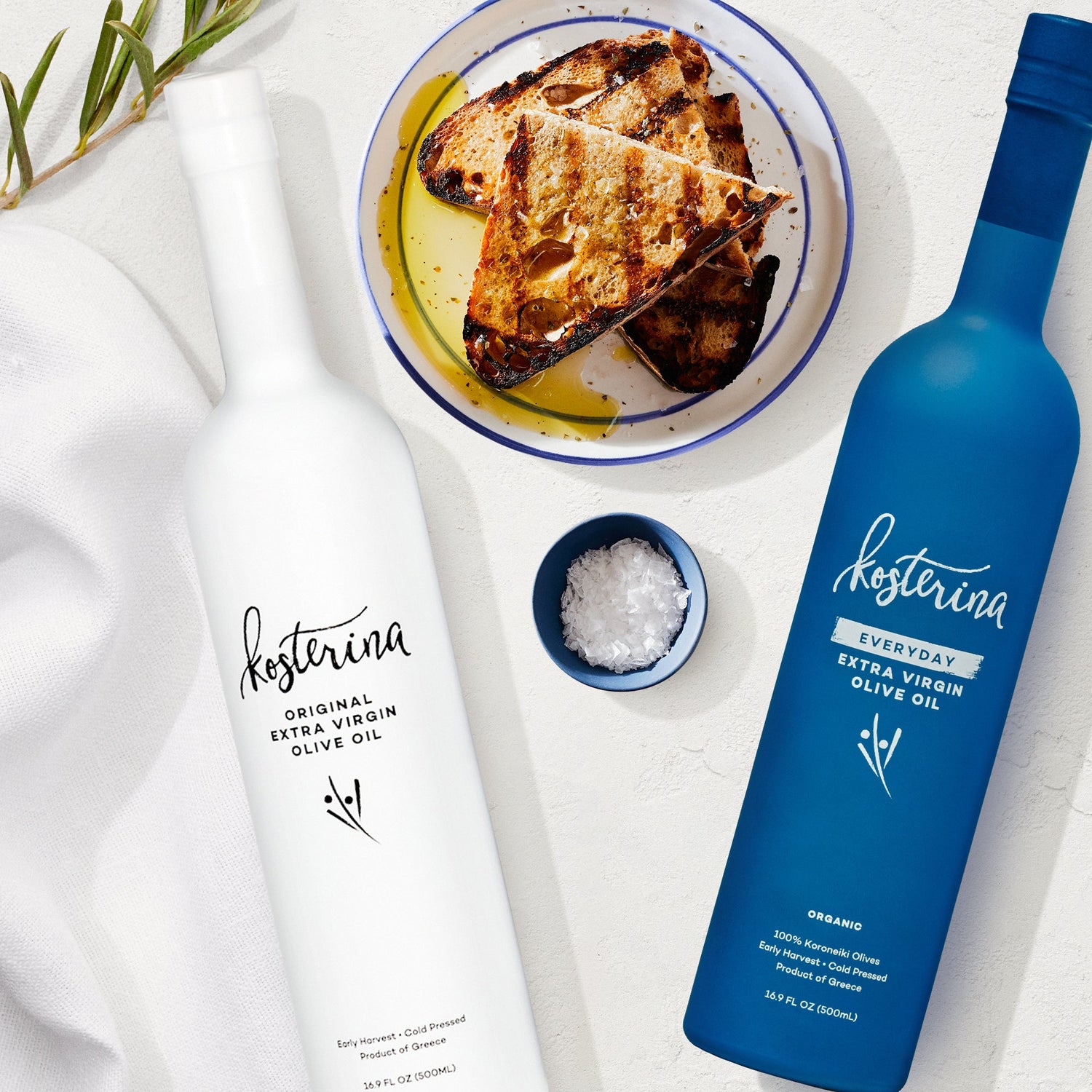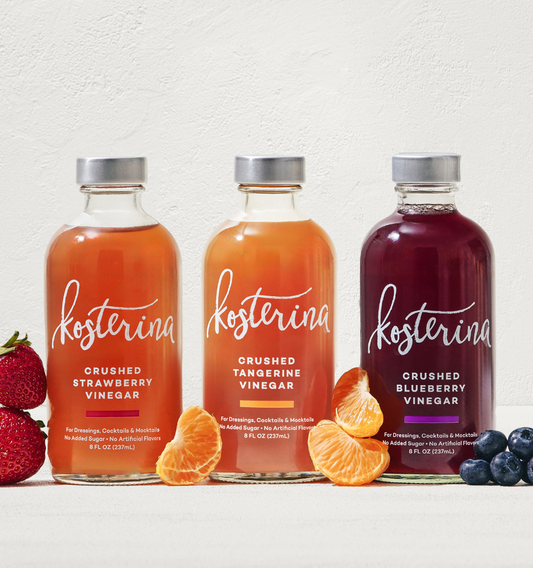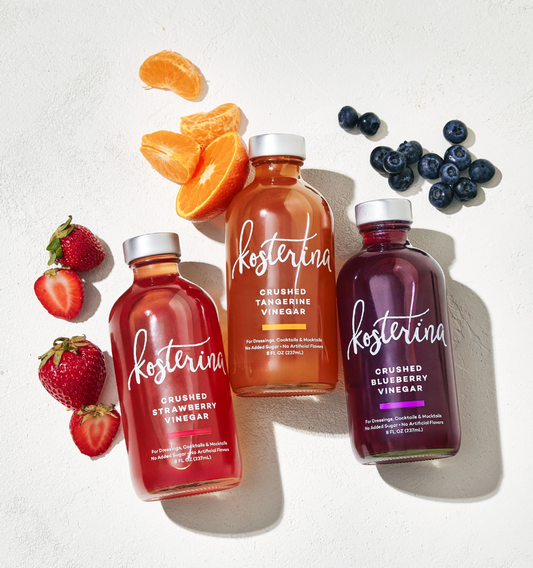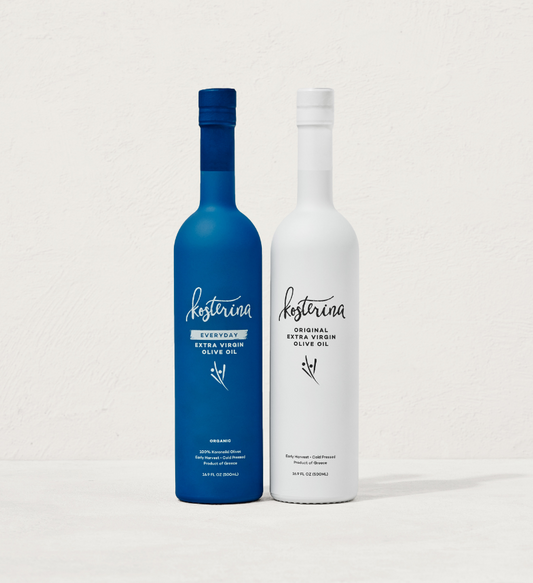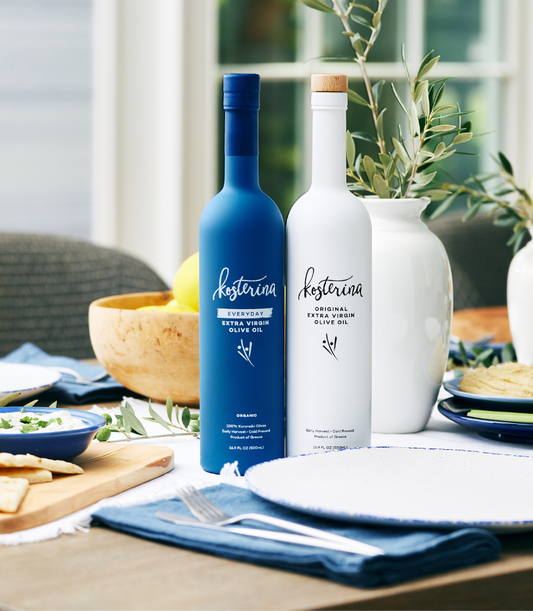Dear Kosterina Family,
Fiber may be the secret to your wellness journey.
Even though we all graduated high school, at Kosterina, we’re still writing book reports because there is always more to learn and we want to share our wellness knowledge with you! This book by Will Bulsiewicz MD. MSCI, titled Fiber Fueled, that has received positive recognition from doctors and health experts across the wellness industry. Today we are sharing our main takeaways on how you can better support your body's health with more attention to your microbiome. Here’s what we learned:
Taking in soluble fiber (fiber that dissolves in water) from diverse sources of plants causes your gut to release SCFA’s (short chain fatty acids) which have tremendous health benefits for your colon, body and brain. SCFA’s improve immune system function, reduce inflammation, reduce cancer risk, reduce risk of heart disease, stroke and diabetes, and help with weight loss by regulating appetite and metabolism. Here are a few of our favorite fiber takeaways:
- You are not what you eat. You are what your bacteria eats: You can give the exact same food to two different people, and the benefits they get from their food will differ based on their microbiome.
- We can't improve our genes, but we can improve our Microbiome: Studies have shown that less than 20% of disease is based on genetics (vs. environment, diet and lifestyle). So while we may have certain genetic predispositions, we have the ability to control our health destiny.
- Focus on Fiber: Making diverse fiber intake a priority in your diet can lead to a healthier gut microbiome and, in turn, superior overall long-term health and vitality.
- Rule #1 - Diversity in Plants: “The greatest predictor of a healthy gut microbiome is the diversity of plants in one’s diet.” Aim to consume at least 30(!) different plants per week.
- Fruit is GOOD! The sugar in fruit is natural – which is by no means the same as processed sugar – it’s packed in with everything else in the fruit – including vitamins, minerals, phytochemicals and fiber.
- Going Gluten-Free may not be good for everyone. By depriving oneself of gluten, we may actually lose part of your carbohydrate-processing ability, making our guts weaker and less adapted to processing and unpacking complex carbs. As a result when we try to reintroduce food in the future, you struggle – ergo, food sensitivity.
- Fermented Foods have tremendous health benefits for the gut. It is one of the few examples of food preservation that actually makes our food even more healthy. The book contains many examples of fermented foods that can be beneficial including cabbage, sauerkraut and kimchi.
- Supplements. Dr. B recommends several plant-derived prebiotic fiber supplements – important to experiment and be consistent – start slow and low and work your way up to tolerance.
- Sulphoraphane. Dr. B argues that this is the most effective phytochemical found in plants. There’s two pages of health benefits in the book including prevention of numerous diseases, improvement of brain function, fat-burning, protection of the heart, etc.
While so much of the focus often goes into our macronutrients (fats, proteins, carbohydrates), we cannot forget: fiber. Feed your brain premium grade fuel!
Peace, Love & EVOO,
Katina & Kostas
